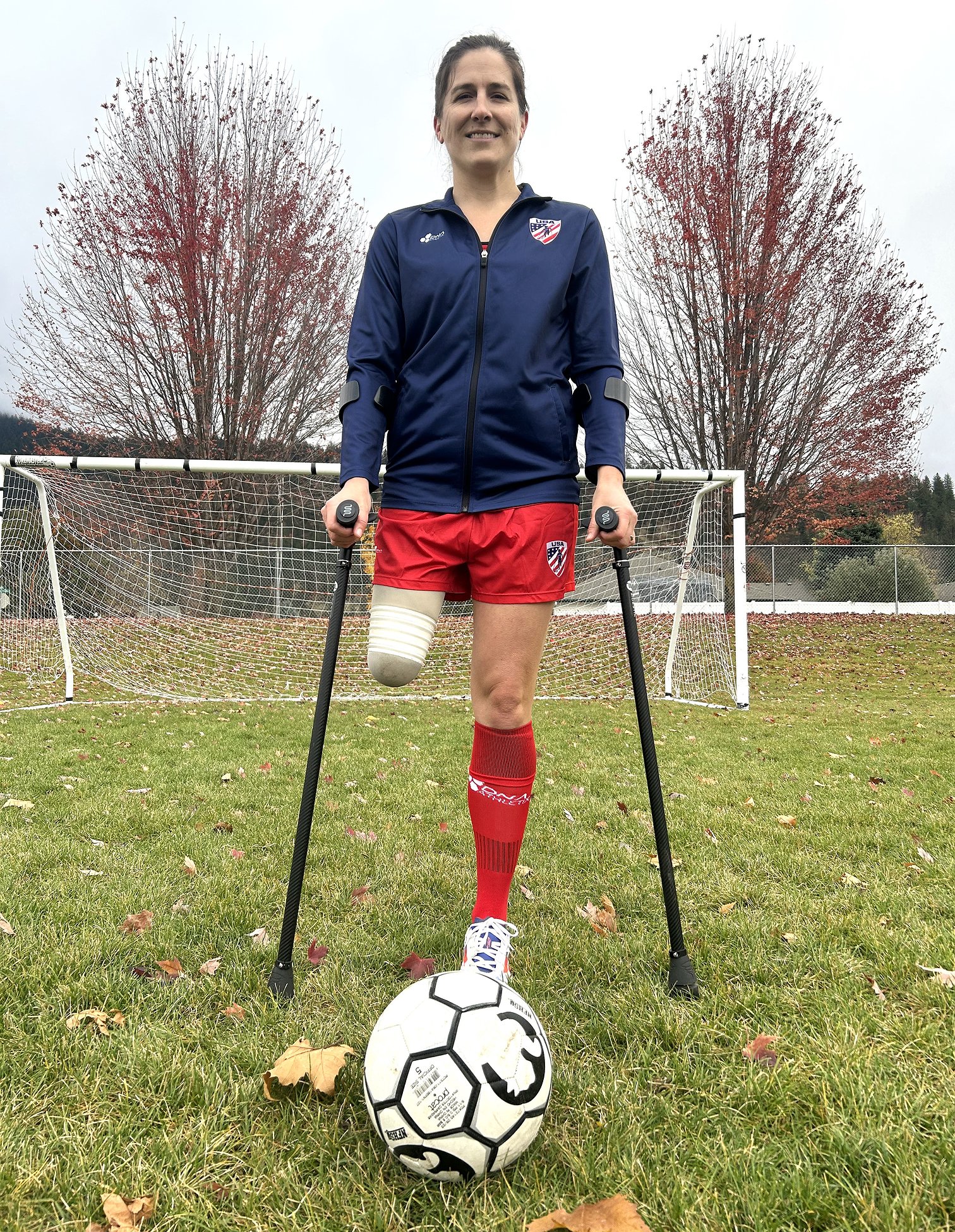Hayden woman: 'You find a way to adapt'
On a cold and windy Tuesday morning, Jenny Gray is kicking a soccer ball across the field at the Canfield Sports Complex.
A few steps and kick. A few more steps and kick.
That, one might think, is no big deal.
But to Jenny Gray, it is. It takes balance, strength and focus, because she is missing a leg.
“You’re running, you’re dribbling, you’re pivoting, all on one leg. It’s a workout,” she said, laughing.
The Hayden woman lost her right leg to cancer a little more than seven years ago. So on this day, she is using crutches to keep moving forward, which she does well.
Refusing to sit back, Gray earned a spot on the U.S. team that will compete in the inaugural Women's Amputee Football World Cup next month in Barranquilla, Colombia.
“I never thought I would play soccer again after losing my leg,” the 39-year-old said. “When you lose a leg, your life changes, but you find a way to adapt and still do a lot of things you used to do.”
Twelve countries will be represented in the tournament Nov. 4-11. Teams, seven on seven on the field, will play at least six games. Prosthetics aren’t allowed, but crutches are OK. Gray said Poland and England will likely be their toughest competition. Their first game will be against Nigeria and Gray doesn’t know what to expect.
“There’s a lot of unknowns,” she said. “We’ll find out when we get out there.”
According to the American Amputee Soccer Association, the tournament “marks a significant milestone, highlighting the growing recognition and support for female amputee athletes worldwide.
"This global momentum reflects a broader movement towards gender equality in sports, ensuring that women with limb differences have equal opportunities to participate and excel in amputee soccer."
Gray was selected for the team in May. She has since traveled to participate in two team training camps, but most often works out alone back home and sometimes with the help of friends.
Weightlifting, overall conditioning and strengthening her leg are staples.
“It's tough because we’re all having to train on our own,” she said.
Not that she minds.
Gray, born and raised in Coeur d'Alene, was sport-minded growing up. She was a sprinter on the Lake City High School track team that won the state title her senior year.
She started playing club soccer at age 8, played in high school and for a year at North Idaho College. Later, she tried adult recreational soccer.
“A big part of my life was soccer,” she said.
Gray earned a degree in natural resource management at the University of Idaho and went on to earn a master’s in environmental science. Today, she gets around well with a prosthetic, even does some running, and is an environmental health specialist with the Panhandle Health District.
She and her husband, Mick, have a son, Dillon.
When she lost her leg to cancer, she said she could have never guessed it would bring her back to the game of her youth. Preparing for the Women's Amputee Football World Cup sparked old memories.
“It’s awesome to challenge my body and feel like an athlete again and to play a sport I love again,” she said.
On the U.S. team, Gray is a midfielder, a change from her competitive days when she was primarily a defender.
"It’s been fun to play more offense and score some goals,” she said.
About half of the members of the U.S. team, which has 10 players and four alternates, have lost a leg to cancer. That shared experience has brought them even closer together and strengthened their resolve to be their best at the World Cup.
“On a bigger level, it’s cool to be part of new adaptive sport, not only in the U.S. but across the world,” Gray said.
According to the AASA, the formation of women's amputee soccer teams at the national level has provided a platform for female athletes to compete and showcase their talents.
“This development is not only empowering individual players but also inspiring a new generation of young girls with limb differences to pursue their passion for soccer,” the AASA said.
Gray agreed.
She sees being on the team as not just an opportunity to bring home a world championship, but to be a role model for others facing physical challenges, and perhaps inspire them to do more than they thought possible.
“So that’s been super cool,” she said.



